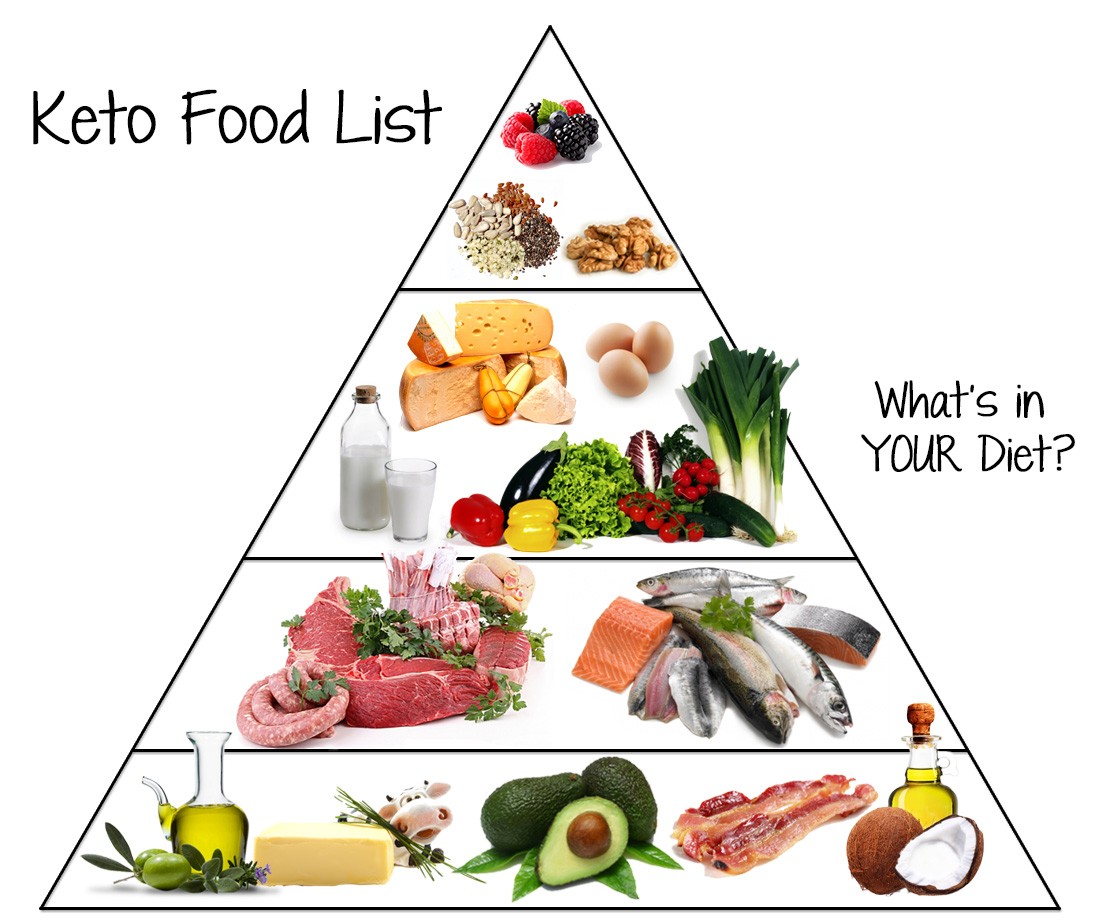Have you been hearing a lot about the keto diet lately and wondering if it could be the key to your weight loss success? Why does it seem to work for so many people? Could cutting carbs and eating more fat really help you lose weight? If you’ve been considering trying the keto diet to shed pounds, you’re not alone. The ketogenic (keto) diet has gained widespread popularity for its ability to promote weight loss and fat burning. But how exactly does the keto diet work, and how much weight can you expect to lose? Let’s explore everything you need to know about keto diet weight loss.
What is the Keto Diet?
The keto diet is a high-fat, moderate-protein, and very low-carbohydrate eating plan. Typically, it involves reducing your carbohydrate intake to around 5-10% of your total daily calories, while increasing fat intake to around 70-80%. The goal of this drastic carb reduction is to induce a state known as ketosis, where your body shifts from using carbohydrates (glucose) for energy to using fat stores instead.
While the keto diet was originally developed in the 1920s as a medical treatment for epilepsy, it has since gained popularity as a weight loss strategy due to its ability to promote fat burning and reduce hunger cravings. But how effective is it, and what results can you expect when you follow a keto diet for weight loss?

How Does the Keto Diet Lead to Weight Loss?
The keto diet helps with weight loss in several key ways:
1. Burning Fat for Energy
When you drastically reduce your carbohydrate intake, your body eventually enters ketosis, where it begins to burn fat for fuel instead of glucose (sugar). This process can lead to significant fat loss, particularly in the first few weeks of starting the diet. In fact, many people report losing weight rapidly in the initial stages of the keto diet, partly due to the loss of water weight as well.
2. Appetite Suppression
One of the most notable benefits of the keto diet is its effect on appetite. Many keto dieters report feeling less hungry throughout the day. This is likely due to the satiating effect of fat and protein-rich meals, as well as the reduction in insulin levels, which can curb hunger. As a result, people on the keto diet may find themselves eating fewer calories without feeling deprived, making weight loss easier.
3. Stable Blood Sugar Levels
Since the keto diet involves cutting out most high-carb foods, it helps regulate blood sugar levels and insulin sensitivity. This can be particularly beneficial for those who experience blood sugar spikes and crashes, which often lead to overeating and cravings. Stable blood sugar can help reduce your overall calorie intake and make weight loss more manageable.
4. Increased Fat Oxidation
Some studies suggest that the keto diet may enhance the body’s ability to burn fat by increasing fat oxidation. Essentially, your body becomes more efficient at breaking down and using fat for energy, helping you to lose fat over time.
How Much Weight Can You Lose on the Keto Diet?
While individual results vary, many people experience rapid weight loss in the initial weeks of the keto diet. In fact, it’s common to lose up to 10 pounds (4.5 kg) in the first two weeks. However, much of this early weight loss is due to the depletion of glycogen (stored carbohydrates) and water weight. After the initial phase, weight loss typically slows down to a steady pace of 1-2 pounds (0.45-0.9 kg) per week.
On average, a person following a ketogenic diet can expect to lose around 20-30 pounds in the first few months, depending on factors such as their starting weight, activity level, and adherence to the diet. For those with more weight to lose, the keto diet can potentially lead to even greater results.
Keto Diet Meal Plan for Weight Loss
A typical keto diet focuses on high-fat, low-carb foods. Here’s an example of a keto meal plan to help you get started:
Breakfast
-
Scrambled eggs cooked in butter with spinach and avocado
-
Coffee with heavy cream or a keto-friendly smoothie
Lunch
-
Grilled chicken salad with leafy greens, olive oil, and feta cheese
-
Zucchini noodles with creamy Alfredo sauce
Snack
-
A handful of nuts (almonds, walnuts, or macadamia nuts)
-
Cheese slices or a boiled egg
Dinner
-
Salmon with asparagus cooked in butter
-
Cauliflower rice or roasted vegetables
By sticking to low-carb vegetables, healthy fats like avocado and olive oil, and moderate amounts of protein, you can keep your body in ketosis and continue to lose weight.

Potential Benefits of the Keto Diet
The keto diet doesn’t just promote weight loss—it also offers other potential health benefits, including:
-
Improved Mental Clarity: Many people report improved focus and cognitive function after following the keto diet, possibly due to the brain’s preference for ketones (the byproduct of fat metabolism) over glucose.
-
Enhanced Physical Endurance: Since the keto diet helps the body become more efficient at burning fat, athletes may experience improved stamina and endurance during workouts, especially for long-duration activities like running or cycling.
-
Lowered Blood Sugar and Insulin Levels: The keto diet has been shown to improve insulin sensitivity and lower blood sugar levels, which is particularly beneficial for individuals with type 2 diabetes or prediabetes.
-
Better Heart Health: Some studies suggest that the keto diet may help lower levels of bad cholesterol (LDL) and increase levels of good cholesterol (HDL), improving cardiovascular health.
Potential Drawbacks of the Keto Diet
While the keto diet offers several benefits, it’s not without its drawbacks. Some of the challenges include:
-
Keto Flu: When transitioning into ketosis, some people experience symptoms like fatigue, headaches, nausea, and irritability—commonly referred to as the “keto flu.” These symptoms are temporary and usually subside within a few days to a week.
-
Nutrient Deficiencies: Since the keto diet restricts certain food groups, it can lead to deficiencies in essential nutrients such as fiber, potassium, and magnesium. It’s important to include a variety of low-carb vegetables and consider supplements if necessary.
-
Difficulty with Long-Term Adherence: The strict nature of the keto diet can make it challenging for some people to stick with it long term. Over time, cravings for carbohydrates may become more difficult to manage.
FAQ: Common Questions About Keto Diet Weight Loss
1. Is the keto diet safe for everyone?
The keto diet is generally safe for most healthy individuals, but it may not be suitable for people with certain medical conditions, such as liver disease or pancreatitis. Always consult with a healthcare professional before starting the keto diet.
2. How much weight can I lose in the first week of keto?
Many people lose up to 5-10 pounds (2-4.5 kg) in the first week due to water loss and glycogen depletion. However, this rapid weight loss is usually temporary, and the rate slows down after the first few weeks.
3. Can I exercise while on the keto diet?
Yes, exercise is encouraged while on the keto diet. In fact, keto can improve endurance for long-duration activities like running or swimming. However, high-intensity workouts may be more challenging during the initial stages of the diet.
4. How long does it take to see results on keto?
Most people start to see weight loss results within the first week, although significant fat loss may take 2-3 weeks as the body fully adapts to burning fat for fuel.
5. Can I drink alcohol on the keto diet?
Alcohol can be consumed in moderation on the keto diet, but it’s important to choose low-carb options, such as dry wine, spirits, or light beer. Be mindful of your total carb intake to stay in ketosis.
6. What can I eat on the keto diet?
You can eat fatty meats (like bacon and beef), fish, eggs, dairy, low-carb vegetables (like spinach, zucchini, and cauliflower), and healthy fats (such as avocado and olive oil). Avoid high-carb foods like bread, pasta, and sugar.
Is the Keto Diet Right for You?
The keto diet can be an effective way to lose weight, especially in the short term. By drastically reducing carbs and increasing fat intake, the body enters ketosis, where it burns fat for energy. With benefits like appetite suppression, fat burning, and improved blood sugar regulation, many people experience success on the keto diet.
However, it’s important to remember that no diet works for everyone, and the keto diet may not be sustainable or suitable for everyone in the long run. As with any weight loss plan, it’s essential to find an approach that works best for your body and lifestyle. Make sure to consult with a healthcare professional before starting the keto diet and aim for a balanced approach to healthy living.